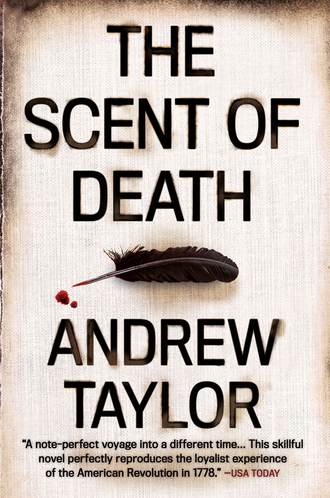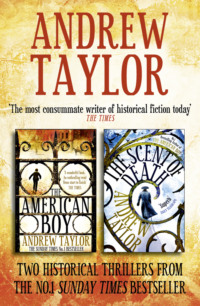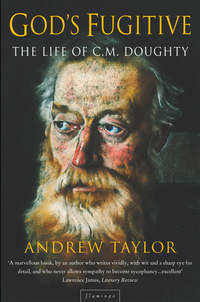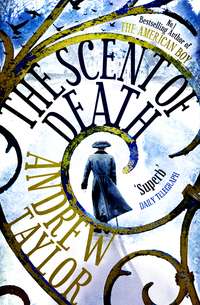
Полная версия
The Scent of Death
I said that nothing would give me more pleasure.
‘Then that is settled. Miriam – light me into the house and then bring candles for Mr Savill directly. You will find the backgammon board under that seat in the corner, sir. Or Miriam will fetch it out for you.’
The two women set off for the house. After a moment I went over to the corner and put my hand into the darkness under the seat. The smell of lemon juice and vinegar was stronger here. The Wintour ladies were good housekeepers. I felt the outlines of the backgammon box and drew it out. I laid it on the table and opened it. It was too dark to see the counters clearly.
I did not have long to wait. Miriam came down the path with a candelabra, its candles unlit, a taper and the lantern. She put them on the table beside the backgammon board but made no move to light the candles. Her hands were shaking.
‘If it please your honour,’ she said, ‘I think mistress will stay in the house now.’
‘It doesn’t matter. I shall come in myself in that case.’ I rose to my feet and, as I did so, the woman clutched the edge of the table. ‘Is something wrong, Miriam?’
‘Oh, sir, it’s the Captain.’
‘But I thought you said Major Marryot had called.’
‘Yes, sir,’ Miriam said, stumbling over her words. ‘He brought the news. Mr John, sir. Captain Wintour.’
It took me a moment to realize what she meant. ‘Oh, I’m so sorry. Such distressing—’
‘No, sir, it’s not that. Mr John ain’t dead. He’s alive.’
Chapter Fifteen
The first week in New York stretched into a month and then to another. I found myself imperceptibly adjusting to my situation until it appeared almost unremarkable.
The war coloured everything and nothing. Perhaps it had been like this in Troy for most of the ten years that city had been invested by the Greeks. Perhaps in Troy, as in New York, life had continued much as usual in the long intervals between battles. It almost made a man wonder whether the battles were necessary in the first place.
In October, Mr Rampton wrote with what he said was good news. Lord George Germain had been pleased to say with the kindest condescension imaginable that he had glanced over a memorandum I had composed before leaving for New York, and thought it a model of its kind. The Department would benefit greatly from a man of Mr Savill’s proven abilities as its eyes and ears in New York.
This being so, His Lordship desires me to communicate to you his wish that you should remain in New York for a few months more. Since a winter passage would not be at all agreeable for you, I took the liberty of suggesting that we should therefore extend your commission until the March or April. Who knows, by that time the rebels may have capitulated. We hear on every side that the Continental troops are deserting in droves because Congress cannot pay them except in their own worthless dollars.
My dear Savill, what a feather in your cap is this! Matters are turning out just as I had hoped. In haste, for the messenger is about to post to Falmouth to catch the packet before it sails with the August mail, believe me
Truly yours, HR.
At first I could not but be pleased that my abilities had earned such approval – not only from Mr Rampton but from Lord George himself. Then my mind swung to the other extreme. I had been sentenced to pass another five or six months in this uncomfortable provincial backwater. I should be obliged to deal, week in, week out, with ever-swelling numbers of unfortunate Loyalists, with the rudeness of Major Marryot and with an array of criminal cases.
And what of Augusta? My wife and I did not agree in many respects but she had never denied me a husband’s rights. Indeed, she showed a surprising enthusiasm for granting them to me when the candle was out and the curtains were drawn. To be absent from her was to have an itch one could not scratch. As a prudent and rational man, I should no doubt have told myself that the gratifications of marriage would prove all the sweeter if I continued longer in New York. But prudent and rational considerations seemed to have no noticeable effect on this particular itch.
In this reckoning of potential profit and probable loss, where did Lizzie figure on my balance sheet? For a child of five, a single month was an eternity, and I had already been separated from her for three. I knew she would be well looked after in Shepperton, and that my sister would ensure that she had no material wants. But she must miss her papa. Her mother had never cared much for Lizzie, perhaps because hers had been a difficult birth, and disliked having the child about her. But I had loved her from the first. I felt my daughter’s absence as a man must feel the lack of an amputated limb.
Still, there was no help for it. If I were to make a new home for the three of us and provide Augusta and Lizzie with the necessities of life and even a few luxuries, I must remain in New York for the time being.
I asked Mr Wintour whether I might extend my stay in Warren Street.
‘Nothing would give me greater pleasure,’ the Judge said, staring at me over the top of the glasses he wore for reading. ‘Before you came I was entirely surrounded by a monstrous regiment of women.’ He smiled to show that the words were intended as a pleasantry. ‘Besides, I do not find it agreeable to drink His Majesty’s health by myself. Toasts should be made in company, and another gentleman is indispensable for that. And of course it means I shall have the pleasure of making my son known to you when he returns. It may be any week now, you know – he writes that he is almost restored.’
‘I would not wish to inconvenience Captain Wintour, sir,’ I said. ‘If you would prefer me to remove—’
‘No, no, my dear sir. I would not hear of it. And nor would Mrs Wintour, and nor Bella. It is Bella who counts most particularly, you know, for this is her house. As for John, he will enjoy having a man his own age to talk to. Otherwise I fear he will find us very dull.’
Mrs Arabella came into the library, and he told her the news. She was looking remarkably handsome today, I thought – this fine autumn weather must suit her. Indeed, I could not understand how I had so readily dismissed her claims to beauty on our first acquaintance. ‘Once seen,’ Mr Noak had said of her, ‘never forgotten.’ Perhaps he had been right all along. I had not been a very good judge of anything after the discomforts of our passage from England and the horrors that had confronted me on my arrival in New York.
‘I hope your staying longer will not grieve Mrs Savill and your daughter, sir,’ she said. ‘Your daughter is called Elizabeth, is she not?’
‘Yes, ma’am.’ I was touched that she had remembered the name. ‘It will certainly grieve me not to see her.’
‘And yet you stay?’
‘Bella, Bella,’ the Judge said. ‘A man must go where he is ordered. You know that, as a soldier’s wife.’
‘Yes, sir,’ she said. ‘Of course I know it. But a child cannot understand the bitterness of parting in the way a wife can.’
Mr Wintour patted her hand. ‘You are too tender-hearted, my dear.’
‘Five years old is very young.’
‘It cannot be helped,’ I said. ‘Though I wish with all my heart that it could.’
Chapter Sixteen
Mr Townley lived very comfortably with his family in a commodious and most respectable house in Hanover Square, next door to an admiral. Most of the ground floor was given over to business.
I had gradually learned that Townley was a man with his fingers in many pies. As well as superintending the city’s police, he sat on several boards, one to do with the execution of port regulations and another to do with the issuing of licences to the cartmen who transported goods about the city and its environs. He had a warehouse on Long Island and also leased Norman’s Slip, out on the Greenwich Road, which enabled him to trade on his own account.
‘My dear sir,’ he said, when I brought the news that my mission in New York had been extended, ‘how very agreeable – for us, at least. And for you too, I hope. Now pray sit down. Another five or six months, eh? Nothing could be better.’
We were in his private room, a back parlour. There was an autumnal chill in the air, and a fire burned brightly in the grate.
‘Will you look for an establishment of your own now?’ Townley asked, leaning forward in his chair. ‘You would be so much more comfortable. I believe I could find you most respectable lodgings in Queen Street if you liked: three chambers, a spacious parlour, a kitchen and wine cellar there. With use of the hall, of course, and the coachhouse and the stables. The widow who owns the house – a most delightful lady – is a friend of my wife’s. I’m sure I could obtain a six-month lease for – let me see – forty-five guineas.’ He raised a long, languid hand as if I had objected. ‘The American Department has a position in the world, after all. Mr Rampton would wish you to live in a style that befits it.’
‘I shall remain at Judge Wintour’s, sir, for the time being at any rate. It is very convenient in all respects.’
‘Ah.’ He looked up. ‘Well, no doubt Mrs Arabella is an excellent housekeeper. It is in fact her house, you know – it was her father’s residence in the city – though she has lent it to her parents-in-law for the duration of the war. But in any case, I am sure the family is happy to have you there.’
Neither of us mentioned money, but I knew my two guineas a week must be a welcome addition to the Wintours’ income. The Judge needed ready money. Everywhere in the house were signs of past affluence and present shortages, from Josiah’s livery with its frayed cuffs and stained armpits, to the carefully rationed tea leaves which were re-used at least once above stairs and probably two or three times more in the kitchen and the slave quarters.
‘Still,’ Townley continued, after a pause, ‘I wonder how you will find Warren Street when Captain Wintour returns.’
‘Equally convenient, I hope.’
‘That remains to be seen. Captain Wintour is not the easiest of men. Of course he has reason enough for that.’
‘Because of Saratoga?’
‘Yes, indeed.’ Townley glanced at me, his face bland but oddly attentive. ‘But there are other reasons, too. He had great expectations from his father-in-law, Mr Froude, but this war has put paid to those, at least until we have peace again.’ He paused. ‘When does he come home?’
‘In a few weeks. He is well enough to travel now, I apprehend, and is in Quebec. His father has sent money for his passage home.’
There was a tap on the door, and Mr Noak brought in a letter for Townley to sign.
‘Ah – the incomparable Noak,’ Townley said with a smile. ‘I cannot imagine how I managed without you.’
Mr Noak bowed but did not return the smile. He was now permanently employed by Mr Townley, who entrusted him with the management of more and more business. His unobtrusive efficiency was matched by his kindness of heart, as I had learned from his care of me at sea. So I was not altogether surprised when, one Sunday afternoon in September, I had found him in the drawing room at Warren Street reading the Bible to old Mrs Wintour, whose eyes were failing. These Sunday visits had settled into what was almost a routine; Mrs Wintour became quite agitated if Mr Noak happened not to be at leisure.
‘There was one other matter, sir,’ Noak said as he took back the letter from Townley. He hesitated, waving the letter to and fro to dry the ink.
‘You may speak, man – we need have no secrets from Mr Savill.’
‘Yes, sir. It is only the docket for Major Marryot.’
‘What of it?’
‘The list includes the boy found drowned by the Paulus Hook ferry. I believe he may be the Government informer who goes by the name of Benjamin Taggart.’
Townley straightened his long spine. ‘Oh yes – well, was he murdered?’
‘I cannot say for certain, sir, either way – he drowned, that is all; I saw no sign of violence on his body. They are keeping it at King’s Wharf for the time being. But what shall I say your recommendation is?’
‘To let sleeping dogs die. Or, rather, drowned dogs in this case.’ He chuckled in appreciation of his own wit. ‘Unless there are reasons why Major Marryot should enquire further into it?’
‘Not that I am aware of, sir. And, even if there were, the boy’s body can tell him nothing more than it already has.’
‘Well, then. I think we need waste no further time on a slave’s by-blow, do you? And I’m sure Major Marryot will agree.’
Noak bowed.
‘Mind you,’ Townley said, ‘Taggart did us one good service, did he not?’ He turned to me. ‘It was he who tipped us the wink about poor Pickett’s murderer. You remember? The runaway, Virgil. We’d not have been able to hang the rogue without Taggart.’
Chapter Seventeen
There could be no harm in it, surely?
On the other hand, a prudent man knew when to leave well alone. Especially a man with his way to make in the world.
As the day went on, I found myself thinking more and more about the Pickett affair. I could not avoid the fact that I felt not only curious about his murder but also in some strange way responsible for the runaway slave they had hanged for it.
It was as if I had failed him.
But was not the man a convicted murderer? Who was I to set my judgement against that of the officers who had made up the court martial? They were vastly experienced; they had been cognizant of all the facts – whereas I was but newly arrived in this city and a positive babe in arms in such matters. Most important of all, my duty was merely to observe the administration of justice: apart from that, I had no legal standing in the affair; nor was I under any moral obligation to go beyond the terms of my commission.
And yet – these were a civil servant’s arguments, perfectly adequate for a departmental inquiry or Mr Rampton or even a court of law. But they did not quite convince me as a man. Now Taggart, the informer, was dead too.
The decision hung in the balance for the rest of the morning, and later at the coffee house where I dined alone and frugally on an elderly mutton chop and a pint of sherry. At the end of the meal, I decided to let chance take a hand in the matter. I felt in my waistcoat pocket for the ivory die I had found under Pickett’s body. I pushed aside the plate and brushed the crumbs away with the napkin.
If it came up with an odd number, I should go back to the office and forget all about the drowned informer, the hanged slave and Pickett’s murder. If the number were even, I should refresh myself with a stroll to the river in the mild afternoon sunshine.
I rolled the die. It danced across the stained linen cloth, ricocheted off the base of the wine glass and came to rest beside the fork. It was a four.
There could be no harm in it, I repeated to myself again and again like a Papist with his rosary, as if repetition could somehow make it true. There could be no harm in it, none in the world.
The Paulus Hook ferry was at the north-west end of Cortland Street, by King’s Wharf. My choice of route proved to be a mistake, for Cortland Street took me through the desolate heart of Canvas Town, not far from the cellar where they had found the body of Roger Pickett.
The roadway itself was an illicit market place. As I passed along it, three whores solicited me, a negro offered me a Pembroke table with three legs and two unmatched chairs, a one-armed soldier tried to sell me a pair of boots, a variety of entertainers sought to distract me, and beggars haunted my every step. A woman showed me the baby at her breast. ‘For the love of God,’ she said, ‘for the love of God.’
This was the other New York, the shadow town, the dark simulacrum of the prosperous shops and stalls that lined Broadway.
At the end of the street, a breeze was coming off the water. Near the shore the river was dense with small craft bobbing on the swell. Further out lay a scattering of merchant ships with a line of men-of-war beyond them. The sea shifted and glittered in the sunshine. A mile or so away was the Jersey coast.
To the south, towards Fort George at the tip of the island, a party of prisoners of war were working with picks and shovels, strengthening the embankment along the shore. A small detachment of Hessians watched over them, though without much interest. There was nowhere for the prisoners to run to and, besides, most of them were in no condition to run anywhere.
At the wharf were more guards, part-time Provincials drunk with their petty authority. I showed the sergeant in charge my passes, one from Headquarters, the other from Townley, and his arrogance modulated swiftly to something approaching servility.
‘Where do you keep the bodies you take from the water?’ I asked. ‘I want to see one of them.’
He laughed. ‘A body, sir? We can show you a fair few of those. We keep them for a day or two, and if no one claims them they go with the others.’
‘What others?’
The sergeant pointed his staff at the prisoners at work on the embankment. ‘They pack the rebel dead into the foundations. Saves all of us a deal of work.’
‘You mean they put dead prisoners there? Under the new embankment?’
‘Yes, sir – and the ones from the water, like I said, assuming they’re not claimed. Might as well do something useful with them, eh?’
‘I wish to inspect the body of a boy,’ I said. ‘His name’s Taggart. Mr Townley’s man has already looked at him.’
‘Ah, yes – that little negro. Over here, sir.’ He led the way towards a warehouse built into the gently sloping ground away from the water. ‘We keep them down the end,’ he said over his shoulder. ‘It’s cooler.’
He unbolted a heavy door and stood aside to allow me to enter first. I found myself in a narrow chamber with a vaulted ceiling stretching across the width of the building. The room was lit by two arched openings, barred but unglazed, placed high in the walls. Below them was a bank of broad, slatted shelves.
The first thing I noticed was the smell – an unlovely compound of salt water, seaweed and decaying flesh. My gorge rose. I covered my mouth and nose with a handkerchief.
‘A man grows used to the stink,’ the sergeant said. ‘I hardly notice it now.’
I glanced about me at the shapes stacked on the shelves. The bodies had been hunched together to save space. Some were naked; others wore a ragged shirt or breeches. I knew that anything worth taking would have been plundered before they were brought here.
‘It’s that one.’ The sergeant poked a mottled arm with his staff. ‘Came in the day before yesterday.’
The small body lay on its side with its back to us.
‘I want to see the face,’ I said.
The sergeant seized the upper arm by the wrist. He tugged it. The body did not move. He grinned at me, spat on his hands and braced his leg against the brick support of the shelves.
‘He’s being a little contrary, sir. But not for long.’
He took the corpse’s arm with both hands and wrenched it violently towards him. There was a sucking, squelching sound. The upper part of the body twisted. The corpse was now on its back, though its legs were still angled away from us. The smell worsened.
The head faced upwards. The sergeant took hold of it by the nearer ear and pulled it closer to the edge of the shelf.
‘That suffice, sir? I can stretch him out if you want.’
‘No need, thank you.’ I forced myself to look at the face. The eyes had gone. I swallowed hard.
‘The one you’re looking for?’ the sergeant asked.
‘Yes.’
There was no doubt about it. It was the mulatto boy I had encountered twice before. He was smaller than I remembered, and perhaps younger – no more than nine or ten. He was very thin, the ribs as clearly defined as the ridges on a fluted column; and there were faded weals on his side where he had been beaten, probably with a rope’s end, but not recently.
‘How long had he been in the water?’
‘A day or two, sir, maybe less. Don’t take long for the fish to get the eyes. Minutes, sometimes.’
Here was the informer who, according to Noak, had brought about Virgil’s death on the gallows. I had seen him twice before, though I had not known his name. On the first occasion, the day of my arrival, the boy had been leading a goat close to the spot where they had found Pickett’s body. The second time, he had been selling goat meat outside the barracks on the morning when they hanged a man for Pickett’s murder.
I straightened up. ‘Have you had any other bodies lately?’
‘A rebel prisoner on Sunday. He’d been in the water for a week or two.’
‘What about a big negro with a long scar on either side of his nose?’
‘No one like that, sir, not to my recollection.’ The sergeant gestured at the boy on the shelf. ‘Seen enough?’
‘Yes. I’m obliged to you.’
‘Do you want me to hold him here for Major Marryot to see?’
I shook my head. What was the point, after all? Marryot would laugh at me.
The sergeant pushed the body back on to its side and rubbed his hands on his coat. ‘Runaway, was he?’
‘I don’t know,’ I said. ‘Perhaps he was running from something.’
‘And then it caught up with him,’ the sergeant said.
Chapter Eighteen
Early in November, I saw the little girl for the first and last time.
I had just dined with the Commandant and a considerable company of gentlemen, most of them in uniform. There had been much food and many toasts. I was a little drunk, and therefore disposed to be emotional.
As I strolled along, Lizzie was in my mind, which was perhaps why I noticed the child in the first place. The thought of my daughter aroused a host of feelings in me – love, of course, and a sort of hunger for her company, and also anxiety: suppose she fell ill? Suppose her mother or her aunt treated her cruelly? Suppose I were to die, leaving her penniless and unprotected in this harsh and unforgiving world? Suppose the unthinkable, that Lizzie herself should die?
It was still early in the evening and Broadway was crowded. It was dark. There were a few streetlights, and the lighted windows and shop doorways. But these emphasized the gloom rather than dispelled it. That was when I saw the child.
The girl was younger than Lizzie and was in leading strings. She was with a woman. The two of them had emerged from a haberdasher’s shop about twenty or thirty yards in front of me. Both were muffled against the weather in long cloaks with hoods over their heads. The woman tugged the girl along, almost pulling her off her feet. The child had not yet learned how to walk quickly without falling over. She strained against the harness that held her as if bursting to escape.
In a moment they passed a pastry-cook’s shop – a large and brightly lit establishment with two big windows. The child was distracted by the smells and the warmth. She pulled her reins free from the woman’s hand and darted towards the open door.
The woman caught her in an instant. She hooked her arm around the girl’s waist and spun her, legs kicking, into the air. The movement dislodged the hoods from their heads.
The scene was as brightly lit as a stage. I saw the child in profile, her arms outstretched towards the pastry-cook’s, her mouth open in a howl of frustration. She was a negro, as was the woman who had charge of her.
In that same moment, alerted by my footsteps, the woman looked in my direction. To my surprise, I recognized Miriam, Mrs Arabella’s maid.
The scene dissolved. Miriam walked rapidly away, almost at a run, still with the kicking, wailing child in her arms. I called out. She did not turn round. A porter staggered out of the furniture shop next door with his arms wrapped around a large wing armchair, which stopped me dead in my tracks and blocked my view.








